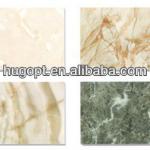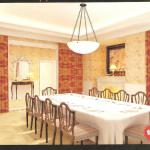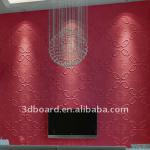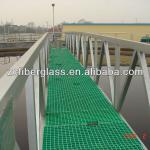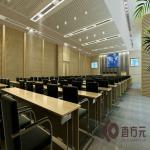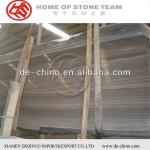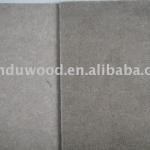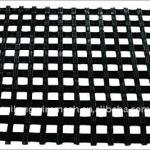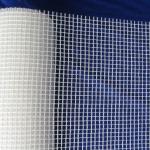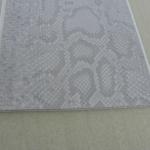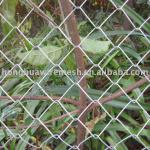Fiber glass rebar,composite rebar, reinforcing bar - Diameter from 6mm to 38mm
| Place of Origin: Guangdong China (Mainland) | Brand Name: PULWELL | Model Number: Diameter from 6mm to 38mm | Technique: pultrusion |
| Application: concrete | Surface: sand-coated | Material: grp,frp,composite | Dimensions: various lengths |
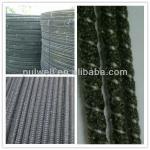
Fiber glass rebar, FRP rebar, GFRP rebar, Composite rebar,reinforcing bar with diameter from 3mm to 38mm
Pulwell manufactures composite R-bars by combining the pultrusion process and an in-line winding and coating process for the outside sand surface.
The FRP composite rebar is made from high strength glass fibers along with an extremely durable vinyl ester resin. The glass fibers impart strength to the rod while the vinyl ester resin imparts excellent corrosion resistance properties in harsh chemical and alkaline environments. For improved Stiffness and mechanical properties a carbon/vinyl ester product is available. FRP rebar significantly improves the longevity of civil engineering structures where corrosion is a major factor.
As compared to steel rebars, composite rebars should be a suitable alternative to steel reinforcing in:
1) Architectural concrete: Cast stone, architectural cladding, balusters, column facades, window lentils, architectural precast elements, hand railing, and statuary and fountains
2) Concrete exposed to de-icing salts in: Bridge decks, railroad grade crossings, median barriers, parking garage elements, and salt storage facilities
3) Concrete exposed to marine salts in: Seawalls, water breaks, buildings and structures near waterfront, aquaculture operations, and floating marine docks
4) Applications subjected to other corrosive agents: Wastewater treatment plants; Petrochemical plants; Pulp/paper mills; Liquid gas plants; Pipelines/tanks for fossil fuel; Cooling towers; Chimneys; Mining operations of various types; Nuclear power and dump plants
5) Applications requiring low electric conductivity or electromagnetic neutrality: Aluminum and copper smelting plants; Manholes for electrical and telephone communication equipment; Bases for transmission / telecommunication towers; Airport control towers; Magnetic resonance imaging in hospitals; Railroad crossing sites, and specialized military structures.
6) Tunneling / boring applications requiring reinforcement of temporary concrete Structures: Structures including mining walls; Underground rapid transit Structures and underground vertical shafts.
7) Weight sensitive structures: Concrete construction in areas of poor load bearing soil conditions, remote geographical locations, sensitive environmental areas, or active seismic sites posing special issues that The use of lightweight reinforcement will solve
8) Thermally sensitive applications: Apartment patio decks; Thermally insulated concrete housing and basements; Thermally heated floors and conditioning rooms
Reasons why composite R-bar is superior to epoxy coated steel bar:
1) Non-corrosive
2) Tensile strength is more than twice that of steel
3) Non-metallic and non-conductive
4) Consistent modulus of elasticity
5) Deformation patterns are the same as with steel
6) Four times lighter than steel
7) Pre-fabricated ACI standard angles and bends available
8) Coefficient of thermal expansion more similar to concrete than that of steel
| Packaging Detail:bundles |
| Delivery Detail:3 to 4 weeks |



